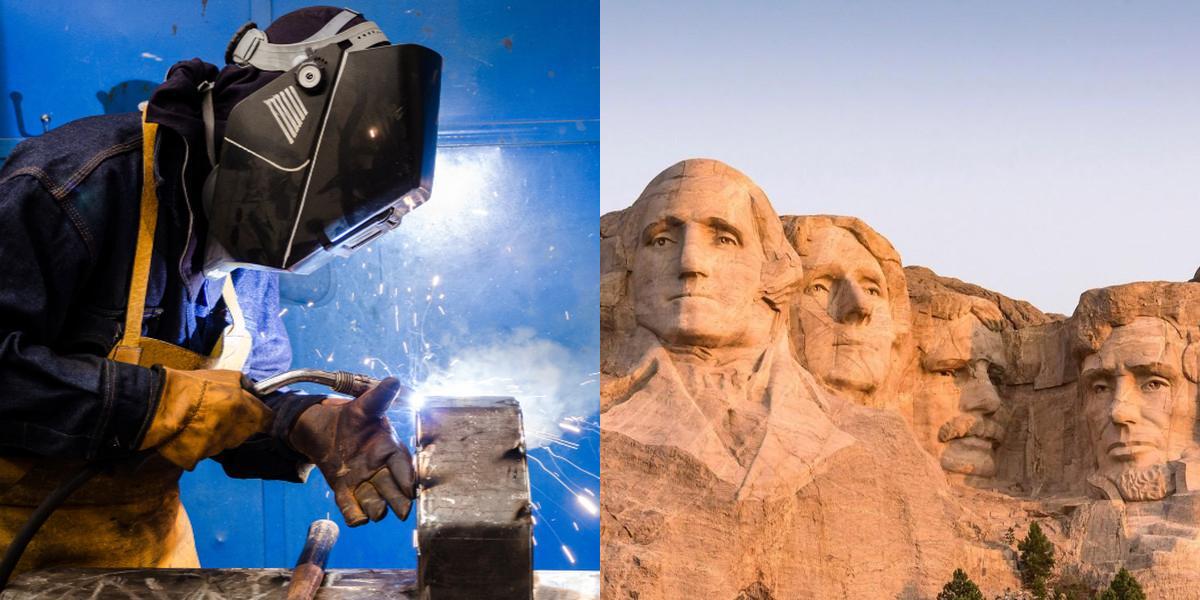How to Become a Welder in South Dakota

What is a Welder?
A welder is a skilled tradesperson who works with metal and uses heat to join or cut pieces of metal together. They are responsible for reading and interpreting blueprints, operating welding equipment, and ensuring the quality and strength of the welded joints. Welders may also be required to perform maintenance and repair work on metal structures.
Step 2: Develop a Portfolio
Creating a portfolio of your welding work can greatly enhance your job prospects. Include pictures or samples of your best welding projects, showcasing your skills and expertise. This will give potential employers a visual representation of your abilities and increase your chances of getting hired.
Step 3: Network
Networking is a powerful tool when it comes to finding job opportunities. Attend industry events, job fairs, and trade shows to connect with professionals in the field. Joining welding associations or organizations can also provide you with valuable networking opportunities. Don't underestimate the power of word-of-mouth referrals, as many job openings are filled through personal connections.
Step 4: Apply for Jobs
Utilize online job boards, company websites, and local classifieds to find welding job openings. Tailor your application materials, including your resume and cover letter, to each specific job you apply for. Highlight your relevant experience, skills, and certifications that match the requirements of the job posting.
Step 5: Prepare for Interviews
When you get called for an interview, it's important to be well-prepared. Research the company you're interviewing with, familiarize yourself with their projects and goals, and prepare answers to common interview questions. Dress professionally and bring copies of your resume and portfolio to showcase your skills and qualifications.
Step 6: Gain Additional Skills and Certifications
To stand out from the competition and increase your chances of getting hired, consider gaining additional skills and certifications. This could include specialized welding techniques, knowledge of specific industries, or certifications in related fields such as safety or quality control. Continuing to improve your skills and knowledge will make you a more desirable candidate for employers.
Career Paths and Opportunities after Becoming a Welder
Once you've become a certified welder and landed a job in the field, there are several career paths and opportunities you can explore. In this section, we will discuss some of the options available to you as a welder.
Welding Inspector
With the necessary experience and additional certifications, you can pursue a career as a welding inspector. Welding inspectors are responsible for ensuring that welding operations meet quality standards and comply with safety regulations. They inspect welds, evaluate welders' performance, and provide guidance to improve welding processes.
Welding Supervisor or Manager
If you have strong leadership skills and enjoy managing projects and teams, you can consider a career as a welding supervisor or manager. In this role, you'll oversee welding operations, coordinate schedules, manage budgets, and ensure that projects are completed on time and within specifications.
Welding Educator
If you have a passion for teaching and sharing your knowledge with others, you can become a welding educator. This career path allows you to train and educate aspiring welders, either through teaching at a welding trade school or through private training programs. You can also consider starting your own welding training business.
Entrepreneurship
As a certified welder, you have the option of starting your own welding business. Whether you choose to specialize in a specific type of welding, offer mobile welding services, or focus on a niche market, entrepreneurship can provide you with the opportunity to be your own boss and have control over your career.
Advanced Welding Techniques
As you gain experience and expertise in the field, you can explore advanced welding techniques and specialize in specific areas. This could include underwater welding, aerospace welding, or pipeline welding, among others. Specializing in a niche area can open up unique career opportunities and potentially lead to higher earning potential.
How much does a Welder make?
The average salary for a welder can vary depending on factors such as experience, location, and industry. According to the U.S. Bureau of Labor Statistics (BLS), the median annual wage for welders, cutters, solderers, and brazers was $43,410 as of May 2020. The lowest 10 percent earned less than $30,860, while the highest 10 percent earned more than $64,240.
Starting salaries for welders can vary greatly. Entry-level welders with little to no experience may start at or near the lower end of the salary range. However, as they gain experience and develop their skills, their earning potential increases.
Final Thoughts
Becoming a certified welder opens up a world of opportunities in a rewarding and in-demand field. By following the steps outlined in this article, you can obtain your welder certification, secure a job in the industry, and explore various career paths. Whether you choose to advance your skills, pursue leadership roles, or start your own business, the possibilities are endless in the world of welding. So, get started on your journey to becoming a welder and enjoy a fulfilling and successful career.
Dreambound offers a window into various career paths, so if you're considering a shift in your career, browse through these articles:




